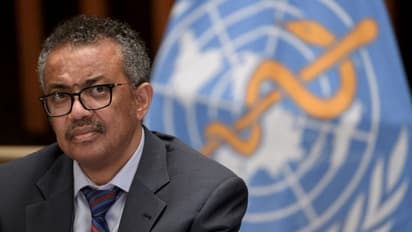'Even deadlier than COVID-19': WHO chief warns of 'another pandemic' threat

Synopsis
The WHO chief said that the world must prepare for a virus that is "even deadlier" than COVID which he stated has killed at least 20 million.
World Health Organization (WHO) chief Dr Tedros Adhanom Ghebreyesus has warned that future virus could be even deadlier than COVID-19 and the world should be prepared for it. Addressing the annual health assembly in Geneva, Dr Tedros emphasised the need to prioritise negotiations aimed at preventing future pandemics.
Despite the declaration by the WHO that COVID-19 is no longer a health emergency, Dr Tedros cautioned that the ongoing pandemic is far from over. The WHO chief said that the world must prepare for a virus that is "even deadlier" than COVID which he stated has killed at least 20 million.
Australian PM Anthony Albanese announces to establish new Consulate General in Bengaluru
"The threat of another variant emerging that causes new surges of disease and death remains," Tedros said. "And the threat of another pathogen emerging with even deadlier potential remains."
According to several news organisations, the WHO has identified as many as nine priority diseases that pose the biggest risk to public health. These diseases are cited as risky due to a lack of treatment or their ability to cause a pandemic.
"The world was taken by surprise and found unprepared for the COVID-19 pandemic, the most severe health crisis in a century," the WHO chief was quoted as saying.
PM Modi, Anthony Albanese condemn attacks on temples in Australia; check details
Speaking at the assembly weeks after ending the global emergency status for the COVID-19 pandemic, Tedros said it was time to advance negotiations on preventing the next pandemic.
"We cannot kick this can down the road," the WHO director-general said in a major address to the agency's member states, warning that the next pandemic was bound to "come knocking".
The 10-day World Health Assembly in Geneva, which falls on the same as the WHO's 75th anniversary, will discuss issues related to future pandemics, the eradication of polio, and supporting actions to lessen the health emergency brought on by Russia's invasion of Ukraine.
Check the Breaking News Today and Latest News from across India and around the world. Stay updated with the latest World News and global developments from politics to economy and current affairs. Get in-depth coverage of China News, Europe News, Pakistan News, and South Asia News, along with top headlines from the UK and US. Follow expert analysis, international trends, and breaking updates from around the globe. Download the Asianet News Official App from the Android Play Store and iPhone App Store for accurate and timely news updates anytime, anywhere.